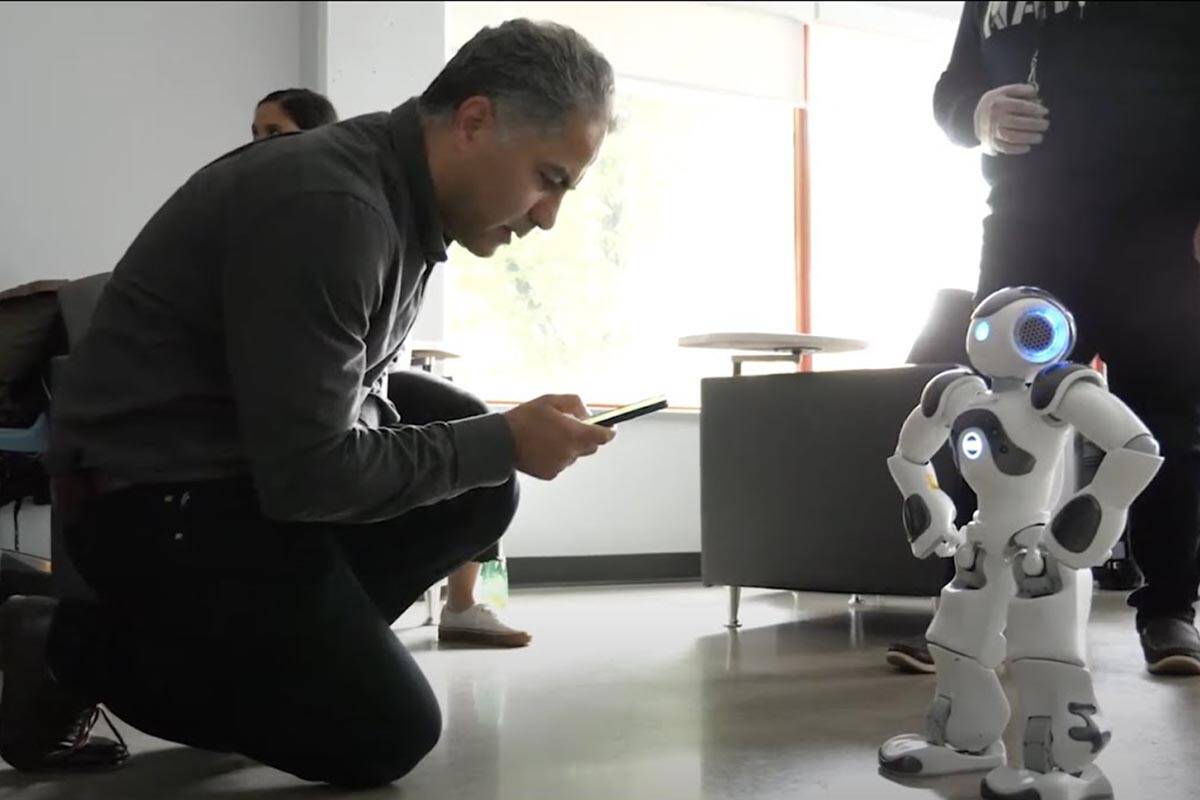Loneliness has become a real concern as the COVID-19 pandemic wears on, and it’s affecting young people and the elderly more than other age groups.
But imagine a robot that could interpret sounds and other cues from the elderly that could make them feel less alone, or a program on a device that could help engage isolated young people.
Researchers at the University of the Fraser Valley’s Community Health and Social Innovation Hub (CHASI) are embarking on a project to learn more about how these kinds of intuitive solutions can help people who are susceptible to loneliness.
“We just got the funding go ahead at the start of the school year,” says Dr. Martha Dow, director of CHASI.
The research will roll out in stages, and will include the use of a few robots who can pick up cues from the elderly, such as sound, to help with their care.
It may mean a certain movement or sound could alert staff in a care home that assistance is needed, Dow explains. They will have three or four artificial intelligence (AI) robots in the study, and will be connecting with care homes and with older adults living independently in the community.
The project involves five researchers from three different disciplines, and has just received $225,000 from the TD Bank Group to fund the project for three years.
The TD Ready Commitment funding will support the research augmented by the AI and machine learning to examine the impact of the pandemic on these two age groups that have been disproportionately impacted.
Along with other research methods, smart algorithms will be developed to detect audio-visual cues, recognize emotions, and respond to symptoms of anxiety and depression, as well as teach new coping strategies. The project team will assess the success of these methods in helping offset social isolation and loneliness.
“We are excited to partner with TD on this project to examine the effectiveness of various interventions in helping these two population groups that have been deeply affected by the pandemic,” said Dow. “These findings will be shared with government, industry, and community partners to enhance social and emotional wellness in our community.”
The World Health Organization (WHO) has identified loneliness as a significant predictor of depression and anxiety in both older and younger adults. However, the rates of social isolation and loneliness are significantly higher amongst older adults compared to all other age groups, with around 40 per cent of all older adults reporting feelings of loneliness.
“For people in communities everywhere, the pandemic has underscored the critical importance of maintaining good mental health, especially during periods of social isolation and loneliness,” said Andy Cribb, Senior Vice President, Branch Banking, TD Pacific Region. “TD is proud to partner with UFV and CHASI as researchers seek to address this significant challenge so that they can help people and communities stay resilient for years to come.”
While youth aged 15-24 are more likely than the general population to report worsening mental health due to COVID-19, the most dramatic impact of the pandemic has been felt by older adults, their families, and caregivers.
“We are particularly excited about this project and helping people affected by COVID-19,” said Anita Nielsen, UFV Executive Director, Advancement & Alumni Relations. “We see UFV’s role as central in supporting the health and wellness of communities and we know this partnership with TD will fuel innovative thinking from inception to implementation while training the next generation of student researchers.”
READ MORE: UFV researcher’s ground-penetrating work helped confirm unmarked graves in Kamloops
@CHWKcommunity
jessica.peters@abbynews.com
Like us on Facebook and follow us on Twitter.
Want to support local journalism during the pandemic? Make a donation here.

